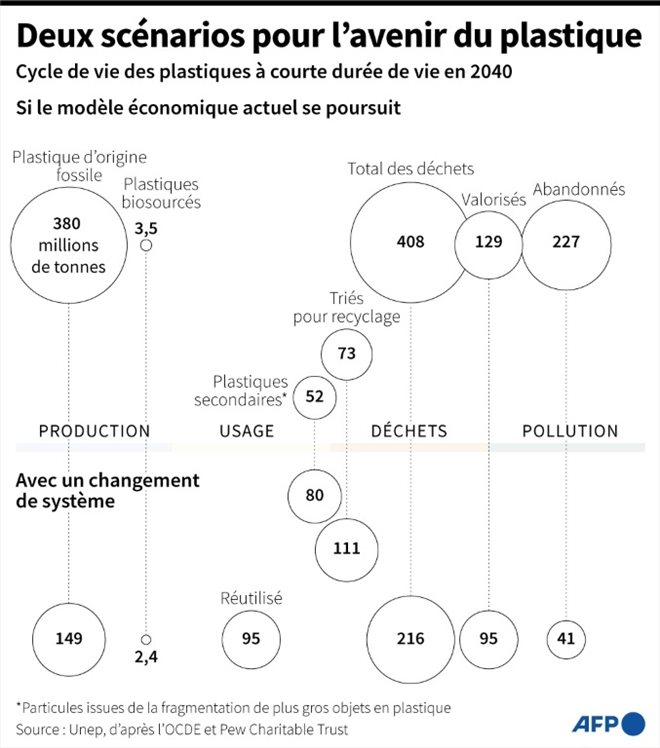Recovering plastic bottles from a landfill in Banda Aceh on May 31, 2022 (AFP/Archives/CHAIDEER MAHYUDDIN)
A “high-level event” to end plastic pollution is organized by France on Saturday at Unesco to give impetus to the delicate negotiation session which will take place next week.
Foreign Minister Catherine Colonna and her Ecological Transition counterpart Christophe Béchu will receive some forty representatives of States from around the world to try to give political impetus to the debates.
But these will really begin on Monday with the start of the actual discussions between negotiators from 175 nations with divergent ambitions and subject to opposing pressure from industrialists and NGOs.
A little over a year ago in Nairobi (Kenya), an agreement in principle was reached to put an end to plastic pollution in the world with the ambition to draw up a legally binding treaty by the end of 2024 under the aegis of the United Nations.
After a first session of negotiations ended on December 2 in Punta del Este (Uruguay), Paris will host the second session out of the five planned in total. Governance issues have so far dominated the exchanges, but the five days of discussions should make it possible to begin to draw broad guidelines.
These discussions “could constitute a crucial step, with the preparation of a first version of the final text of the treaty”, hopes Christophe Béchu.
The stakes are high as plastic, derived from petroleum, is everywhere: packaging, clothing fibers, construction equipment, medical tools…
And its annual production, which has more than doubled in 20 years to reach 460 million tonnes (Mt), could still triple by 2060 if nothing is done.
A situation that is all the more worrying since two-thirds go to waste after just one or a few uses and less than 10% of plastic waste is recycled.
Waste of all sizes ends up at the bottom of the oceans, in sea ice, in the stomachs of birds and even on top of mountains. Microplastics have been detected in blood, breast milk or placenta.

The two scenarios for the future of plastic (AFP/Sabrina BLANCHARD, Julia Han JANICKI)
Plastic is also a problem for its role in global warming: it represented 1.8 billion tonnes of greenhouse gases in 2019, 3.4% of global emissions, a figure which could more than double by 2060 according to the OECD.
The most ambitious countries (54 countries led by Rwanda and Norway, including the European Union, Canada, Mexico, Australia and, since Friday, Japan) now want a “reduction in the use and production of plastic”.
But other nations, on the side of Asia (India in particular) or the United States, could be more timorous and insist on the need to recycle and fight against abandoned waste.
© 2023 AFP
Did you like this article ? Share it with your friends with the buttons below.




